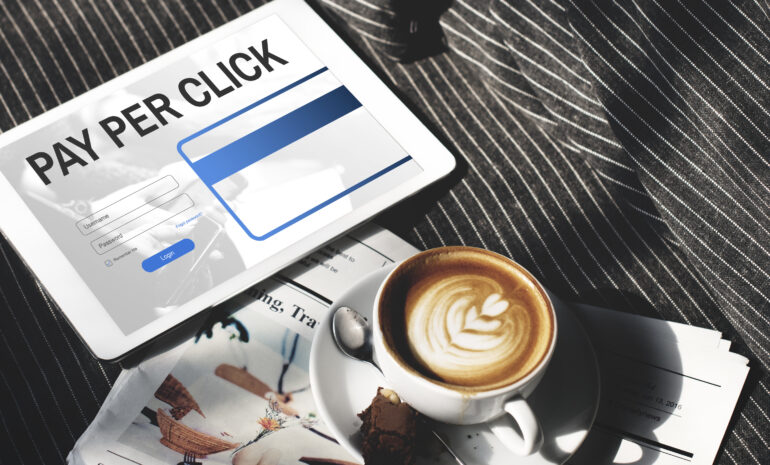Introduction to PPC Advertising.
This piece will further seek to expound on principles of PPC, platforms involved, strategies available, and ways through which you can use PPC for business growth. Finally, you should have a better idea about what PPC is as well as how you can apply it in order to propel your internet marketing campaign ahead further.
What is PPC?
Sometimes, people refer to PPC as pay-per-click, an online advertising model in which the creditor has to pay to the affiliate whenever an ad is clicked. In other words, it is a technique of directly paying to receive more visitors to perform requisite activities on your website instead of trying to build up substantive ways to earn those visitors naturally. This model eliminates the chances where you pay for the impressions (how frequently the ad is displayed), not people’s interaction with the advertisement.
The search engine advertising includes placing ads in the sponsored links of a search engine whenever a keyword related to the advertiser’s business is searched. For example, if a service is advertised under a keyword like ‘plumber near me,’ the advertisement will appear at the top of the Google search results page when that keyword is searched.
How Does PPC Work?
The ppc model is an auction model but it is far from being simple where the highest bidder always gets the bid. Advertisers negotiate on various keywords, and there are several factors that will decide whether the given ad will be displayed, and if yes, then the position of the ad.
Ad Auction
It occurs when one searches for a particular item or a phrase through the popular search engine or website with ads. Selecting of keywords that the advertisers want to bid in is done and when this keyword matches the user’s keyword, then an auction is carried out.
Bids and Quality Score
Every advertiser has a bid—the highest amount he/she is willing to spend to get clicked for the particular adds. But bid price is not the only criteria that define the position of the ads or the fees to be paid to the participants. Such metrics as Quality Score exist in platforms like Google, and it measures the relevancy and quality of the ad and the landing page. The higher your quality score; you are eligible to pay lesser amount for better positions of the ad.
Ad Rank: Most PPC platforms including Google use an equation to decide where these advertisements will be placed.
Ad Rank =Bid Amount ×Quality Score
Cost per Click (CPC)
You can try to set a maximum bid or cost per click, but the amount you pay per click actually depends on your competitors’ bidding price. For example, if your competitor bids $2.00 and your quality score is higher, you will bid $1.80 to secure that position. Companies targeting the right audience with appealing ads and quality landing pages can pay less per click than those offering low quality or irrelevant ads, or simply using higher bids to outcompete their rivals.
Popular PPC Platforms
The good thing is that PPC can be executed in different platforms with distinct characteristics and users. Here are some of the most widely used platforms:Here are some of the most widely used platforms
Google Ads: Google Ads is the biggest PPC platform, and it is usually the first one businesses use, out of all platforms. It has provided text ads, display ads, shopping ads and video ads and so on. A fact that most people do not know is that Google Ads is based on the largest search engine in the world and is widely used by businesses that want to make the most of their advertising expenses.
Bing Ads: Microsoft Advertising, formerly known as Bing Ads is very similar to Google Ads but is based on Bing search engine. The problem for Bing is people do not use Bing as often so it can provide cheaper CPCs and a different market.
Facebook Ads: It is also noteworthy that Facebook’s PPC platform includes the possibility of promoting ads in both Facebook and Instagram. Ads are very personalized when it comes to demographic data, interests and behaviour.
LinkedIn Ads: LinkedIn PPC Ads are suitable for any B2B business that seeks to market its products and services to working professional. There are many models of advertisements on LinkedIn that are available for use most commonly known as sponsored content, message ads, and dynamic ads.
Amazon Ads: Amazon PPC is an important marketing tool for eCommerce businesses as it enables advertisers to promote their products on Amazon’s web site. These ads are inclined more toward products and therefore are perfect for those who wish to make a sale.
PPC Campaign Components:
PPC campaign comprises different aspects, each of which need to be coordinated if the campaign is to deliver the best results.
Keywords Ad Copy
Keywords are arguably the backbone of any kind of PPC marketing campaign. Users are likely to enter these keywords in the search engine or use them while navigating the website. Choosing the right keywords can be a tough process that involves a lot of research on keywords, competition level analysis, conversion rates, user intent, and other aspects of a longer-tail keyword containing low competition rates.
The text written in the ppc ad capturing users’ attention and making them want to visit the website of the person selling the product is the ad copy placed in the ppc ad corresponding to your ad. Your ad copy should be short, to the point, interesting to the user, and match the content they intended to look for.
Landing Pages
Landing page is the web page that a user ends up in after they have clicked on your advertisement. The page through which a user directed must correspond to the ad, be convertible, and created with focus on users’ needs.
Ad Extensions
These are some extra details that one can add onto the post in order to come up with an attractive advert. Some of the ad extensions are the call extensions, site link extensions and the location extensions.
Budget and Bids
You need to define your financial capabilities for the PPC campaign and your bidding plan. Define the budget as the amount of money you are okay to spend on any given day or week; the bids are a clear stand of how much you are willing to spend on each click. Different bidding methods may target clicks cost per click, impressions cost per thousand impressions; conversions cost per conversion; or views cost per view.
PPC Advertising’s Advantages:
Overall, there is much that can be appreciated by the firms which use PPC, especially those ones who seek very focused traffic and quick success. Among the main advantages are
Instant Results
The key advantage of PPC advertisements is that they are capable of funneling people to your site upon publication and this is unlike SEO that may take several months to deliver the message home.

PPC platforms afford the advertisers total control of consumers through geographic location, interests, behaviors, and age. Therefore, businesses are able to reach the correct audience to their product at the right time.
Cost Control: The PPC systems offer you the full control of your spending plan. You have the ability to adjust your bids based on performance and also have the possibility to set limits by day and month.
Measurable ROI
PPC has the ability to track and analyze almost every aspect of any campaign – including clicks, impressions, conversions, and revenue.
This will help you make better decisions regarding the management of your campaign spend and the ROI of your campaigns.Compared to other advertising methods, PPC truly is very versatile and can be easily changed on the fly. You can take your campaigns up or down to small scale or large in an attempt to achieve your business objectives as you observe results.
PPC Strategies For Success
PPC, however, can provide great outcomes and, nonetheless, must be managed properly and systematically. Below are some critical strategies for running successful PPC campaigns
Keyword Research and Selection
Visit Google Keyword Planner, SEMrush or any other keyword research tool of your choice to find relevant keywords for your campaign. When it comes to keywords, it is better to switch between short-tail and long-tail keywords, while considering the user’s motive for the search: purchase or research.
Ad Copy Optimization
Whenever possible, write engaging ad text without searching and incorporating appealing language that would directly relate to the user and incorporate a CTA. After developing several graphical schemes of the ad, try different headlines, descriptions, and call to actions to identify what will work best.
Landing Page Optimization
Organic content has to complement the ad, so your landing page has to provide an experience to the user that wants. The page should be mobile responsive, improve loading speed, and have information that makes the user movement forward toward completing forms or buying something.
Negative Keywords
You also have to block those unwanted searches by employing negative keywords. For instance, if your business deals with expensive goods, then you may wish to block words such as cheap or free from showing your advertisements.
A/B Testing: Always conduct some split testing as you seek to enhance your ads and the landing pages in particular. Split sampling helps a company to compare a number of adverts with the aim of identifying the most effective one.
Bid Management
Do not wait for your bidding strategy to be out of touch in order to improve your ROI. Target CPA or Target ROAS can be used to automate the bidding for conversions with the help of your ad settings but in some cases it is better to use manual bid modifications.
Monitor and Adjust Campaigns
Thus, PPC is not an “implement and leave it” type of campaign. Check up on your campaigns frequently and track the necessary data for making changes on when necessary. Check individual KPI’s like CTR, conversion rate, CPC or ROAS to make sure that your campaigns are on track.
Some of the Common Mistakes that People Make When Using PPC
PPC campaigns can be fraught with mistakes even when nobody is trying to make one, and these mistakes are costly. The following typical errors should be avoided
Negative Keyword Ignoration: When you don’t use negative keywords, you are likely to spend much of your money on useless clicks, and in no time you will be out of cash.
Inadequate Keyword Research: Lack of proper keyword research may cause an error in defining the right audience to be reached or even adopting broad and competitive keywords.
Not Monitoring Conversions: Without conversion tracking, you cannot know which keywords and advertisements are bringing in the money. Make sure you have proper tracking by going to Google Analytics or any other tool you are using.
Ignoring Mobile Users: It is also important for you to ensure that your landing pages and your adverts are mobile friendly given that a large number of people access the internet using their mobile devices.
Establishing and Forgetting Campaigns: A mistake that most marketers make is not setting a campaign and then going through it without occasional changes. The services acquired through PPC require consistent tracking so that you may examine whether you are getting the best outcome possible.
Conclusion
PPC advertising is a critical and effective tool that a digital marketer can maximize on. The benefits of PPC advertising include immediate and tangible gains, making it a perfect tool for firms looking to increase their online presence and generate more leads or sales. However, a PPC campaign is not without its challenges and requires careful planning, execution, and optimization.
By understanding PPC, using the right tools, creating relevant and interesting ads, and improving campaigns, you can boost traffic to your website and achieve high returns on your investment. Whether you are new to online marketing or refining your PPC marketing campaign, there are many ways your business can progress in the present world.







